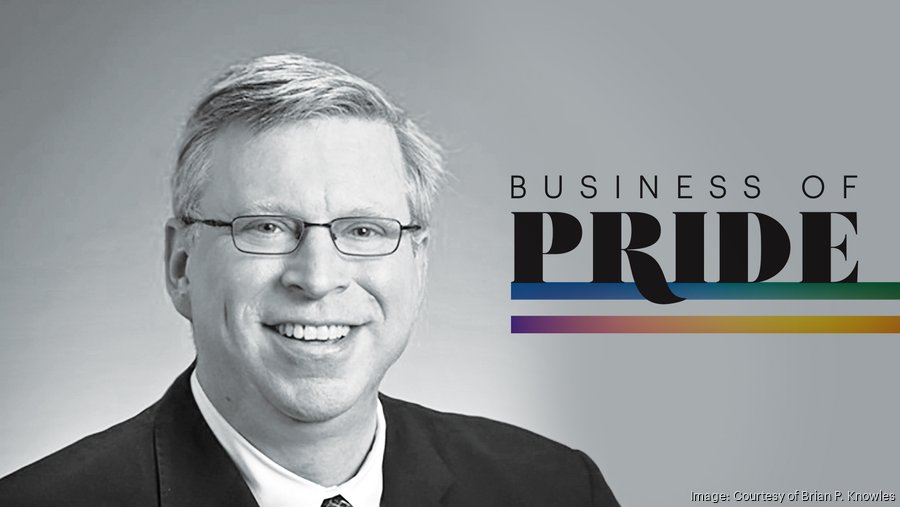Brian P. Knowles has been working empathetically with people with HIV/AIDS for 35 years. And that’s the key: “HIV work is about equity and creating a community where any person has the chance to achieve health and wellness.”
In his role as executive director for Virginia Mason’s Bailey-Boushay House, he’s tasked with keeping his staff and those he serves safe. But he’s also working with people who have the least, and who the Covid-19 pandemic has affected the most. The Bailey-Boushay House helps and treats people with end-of-life care, homelessness, isolation, health care and helps them find places to work and volunteer.
Knowles began his volunteerism for the Gay Men’s Health Crisis, the first HIV/AIDS organization in the world, in the early ‘80s after coming out as a gay man in New York City.
“It was not unusual for those diagnosed with AIDS to lose their job and, if they were a renter, be kicked out of their apartment,” he said. “Families and friends abandoned people. Oftentimes families found out that their son/brother/grandson was gay, had AIDS and was dying all in the same day.”
Those early experiences instilled a motivation to dedicate his professional life to serving people with HIV/AIDS.







We asked each of this year’s Business of Pride honorees to send in a photo that showcased what Pride means to them.
Was there a moment in your past that led you to become more active in the LGBTQ+ community? Early in my volunteering, I was to go into the hospital of people newly diagnosed with AIDS and explain benefits that they were eligible for. One night, after work, I visited a man newly diagnosed with AIDS in a well-known New York City hospital to explain his benefits. When I checked in at the nurses’ station and told them who I was there to see, all four nurses behind the desk turned their backs to me. They would not answer my questions or tell me where the individual was. I finally found his room and all his meal trays from the day were untouched on the floor outside his room – they had never made it into the room because the dietary workers refused to bring them in. I went into the room and my client was barely conscious and covered head to toe in feces and urine. I went rushing to the nurses’ station to ask for help and they all ignored me, walked away or turned their backs to me.
After trying for 10 minutes to get help I decided that I had to do something so I just rounded up clean sheets, towels and washcloths. I spent the next three hours cleaning and sitting with this man. The only thing that I knew about him was his name and that he was 32 and an architect. He was unable to talk to me. He continued to have diarrhea and I cleaned him, ringing the call light without response from staff. I sat holding his hand and then he died. I left the hospital and walked 50 blocks crying and committing to myself that I would dedicate my professional life to serving people with HIV/AIDS. The next day I began looking for a paying job with people with AIDS in addition to the volunteer job.
What space did the Bailey-Boushay House fill when other long-term care facilities and hospitals turned their backs on those diagnosed with HIV/AIDS? Bailey-Boushay House was the first facility that was designed and built from the ground up to serve people with HIV/AIDS at the end of life. Half of the individuals who have died of HIV/AIDS in King County have died at Bailey-Boushay House. We also serve those with other disease processes that cannot be served elsewhere.
Can you speak to the importance of the country’s first emergency homeless shelter serving people with HIV, which you opened in 2018, while the Covid-19 pandemic rages in Washington? Eleven percent of homeless people have HIV. The saddest part of where we are in treating HIV is that the communities that are suffering the most are those who also struggle with so many other health and social issues. For many people HIV is not something that is a concern anymore, but there are still individuals becoming gravely ill and their lives are being cut short by HIV. Covid-19 is one more disease that is affecting people of color and the homeless in a more severe way. We are now reinventing everything we do because we have to balance keeping our nursing home residents, homeless shelter guests and staff safe while still trying to reach those most in need.
What goals do you have for the organization moving forward? Prior to Covid-19 it was getting people with HIV who were homeless off the streets and finding them a permanent place to live through our rental assistance program. Now, we are working with more basic needs: does everyone have the medications, food and personal care supplies that they need? Who is not getting their health care addressed?
Brian P. Knowles
- Age: 56
- Title: Executive Director
- Company: Virginia Mason’s Bailey-Boushay House
- Years at company: 28
- Years in current position: 16
- What city is your business headquartered? Seattle
- How many employees does your company have? 178 people work at Bailey-Boushay House and 150 people volunteer
- How many markets is your company in? Bailey-Boushay House mainly serves King, Pierce and Snohomish counties but sees people from all over Washington state
- What restaurant/watering hole will you visit first when the stay at home order lifts? Friend’s houses
- What’s been your favorite TV show to binge while at home? "Tiger King"





